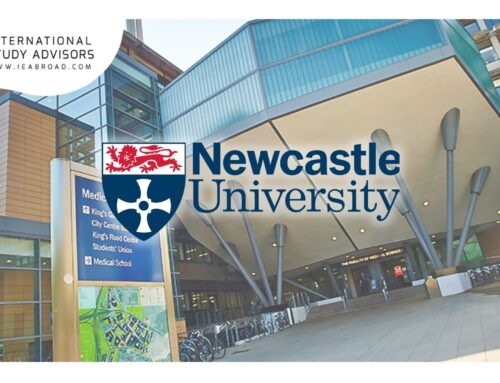Now more than ever, students are looking to make themselves as employable as possible. They’re keen to know what they can do during their time studying to help set themselves apart from other graduates, but also to ensure they future-proof their degrees.
My advice to them is always the same: while you are at university, do as much as possible to diversify your degree. Keep this top of mind when you are choosing your course as well as when you are choosing WHERE you’re going to study.
What do I mean by diversifying your degree? I don’t mean that you shouldn’t concentrate on your major – if you’d like to work as an accountant, as a lawyer, or in one of a number of professions that start with your degree as your first step to qualification then you need to make sure you’re focused on your studies and taking the optional modules that will help you to gain your desired professional skills and any exemptions.
By diversifying I mean that you need to look at how you spend your time outside of this. Are there are optional modules available in other areas that may be helpful; perhaps you’re studying a business major and some organisational psychology modules would be interesting and useful if your institution offer that subject?
You can also think about this broadly. Does my university offer additional years to gain experience outside the classroom? Many universities will offer industrial placements, professional practice, or years studying overseas with partner institutions. Further options include a year to study an additional subject – as an example, the University of Kent offers a Year in Computing option where students learn coding, web skills, and also data analysis skills. All increasingly useful skill sets that sit well alongside other programmes and complement your degree.
This diversification doesn’t stop in the classroom either. Taking part in sports and extra-curricular activities will allow you to foster new skills. Getting involved in debate, philosophy- or political societies will introduce you to a new way of thinking that will help you to think critically and logically. Performing on stage and in front of an audience as part of a theatre group or a choir will help you to manage anxiety with public performance and could make you a more confident public speaker. Extra language courses are incredibly useful, and another activity that you can undertake in your free time. Even if you only start at a beginner level, having a basic grasp of another language and an interest in other cultures will demonstrate flexibility and commitment to growth to any potential employers.
Another avenue to consider is what you do in your holidays and when you can get some experience of working. You can get a part-time job in the UK while you’re studying that allows you to work during term time as well as in the holidays. Even if your primary reason for doing this is to have some more money to cover living expenses it will be incredibly useful experience. Although working in a shop or a café might not feel relevant to your intended career path you’ll be building transferable skills that employers will be looking for. There are also internship opportunities available for your holidays allowing you to get more relevant experience, and the university can help you find this. Our Jobshop and our Careers and Employability Service are there to help you throughout your time at university.
In short: enjoy your time at university, and make the most of every opportunity you see along the way.
By Charlie Greenwood, International Officer at University of Kent
Interested in studying abroad in the UK? Let’s make your future a reality today!




